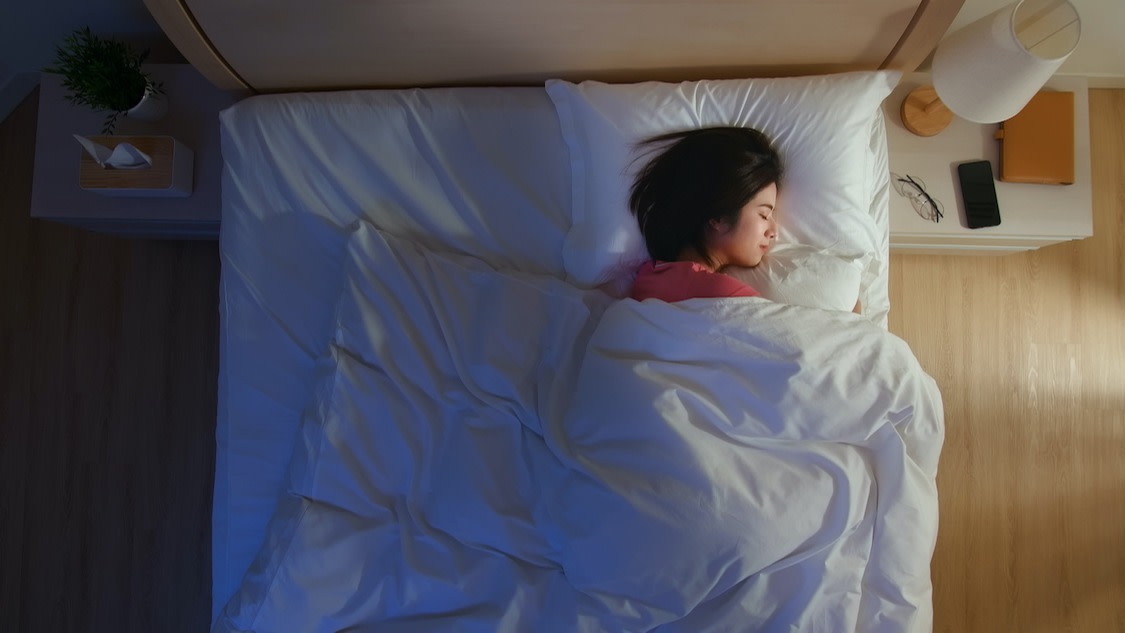How Melatonin Works With Your Body’s Internal Clock
Written by MasterClass
Last updated: Jun 7, 2021 • 3 min read
Busy schedules, erratic shift work, and the increasing use of bright screens in our daily activities can lead to poor sleep quality and sleep disturbances. While you can adjust your sleeping habits without aids, some people turn to melatonin supplements to get their sleep schedules back on track. Learn about melatonin and how the hormone affects sleep.
Learn From the Best
What Is Melatonin?
Melatonin is a hormone secreted by the brain’s pineal gland responsible for eliciting feelings of drowsiness to help you fall asleep. Melatonin levels rise in response to darkness, working in tandem with the circadian rhythm (the 24-hour cycle that regulates bodily functions) to prepare your body to transition into wakefulness, the first sleep stage. Low melatonin production can adversely affect sleep quality, making it difficult to fall asleep. Night shift workers, people with sleep disorders, and frequent travelers may experience interruptions to their sleep patterns and sleep quality that can be linked to a reduction in melatonin production. While the human body naturally produces melatonin, there are supplements of the hormone that pharmacies sell over-the-counter for those dealing with sleep interruptions.
How the Body Regulates Melatonin Release
Melatonin release is regulated by the suprachiasmatic nucleus (SCN) in the hypothalamus, which coordinates the timing of biological events, like hormone release, body temperature, sleep, and digestion. Located above the optic chiasm (the nerves that connects your brain to your eyes), the SCN uses the light entering your eyes to determine how much melatonin it secretes. When it is darker outside, your body secretes higher levels of melatonin, which makes you feel drowsy. If your circadian rhythm is out of balance, your body may receive more melatonin during the day, which can lead to disturbed sleep-wake cycles or certain sleep disorders.
3 Benefits of Melatonin Supplements
Melatonin supplements are a synthetic form of melatonin made from various animals’ pineal glands that can relieve specific sleep problems. The safe use of melatonin supplementation depends on your overall health, so consult your doctor before taking the sleep aid. Here are a few ways to use melatonin:
- 1. Helps regulate your sleep schedule. According to Johns Hopkins sleep experts, melatonin is most beneficial when you use it to work with your sleep schedule, rather than against it. For example, taking a low dose of melatonin around two hours before your regular bedtime can help your natural sleep-wake cycle, making it more likely you’ll feel relaxed enough to sleep well through the night.
- 2. Helps relieve jet lag symptoms. Travelers who travel across different time zones may experience jet lag, a temporary sleep problem with symptoms like excessive daytime sleepiness, difficulty concentrating, or insomnia. Melatonin supplements are often used to decrease jet lag symptoms, but recent studies show that the supplement works best when paired with your natural sleep-wake cycle.
- 3. Strong antioxidant properties. While the supplement is primarily known as an over-the-counter sleep aid, scientists have discovered that synthetic melatonin contains strong antioxidant properties, which help protect your cells against free radicals that can be harmful at higher levels. While the Food and Drug Administration (FDA) has approved melatonin supplementation for certain uses, additional research is needed to determine the long-term effects of melatonin use. Thus, melatonin supplements are generally recommended for short-term use. Consult your healthcare provider before using the supplement for its antioxidant properties to determine if you can safely use the sleep medicine.
Want to Learn More About Catching Those Elusive Zs?
Saw some of the best darn logs of your life with a MasterClass Annual Membership and exclusive instructional videos from Dr. Matthew Walker, the author of Why We Sleep and the founder-director of the Center for Human Sleep Science at the University of California, Berkeley. Between Matthew’s tips for optimal snoozing and info on discovering your body’s ideal rhythms, you’ll be sleeping more deeply in no time.
